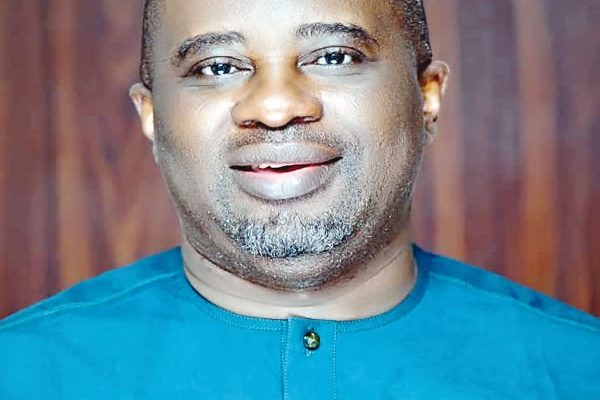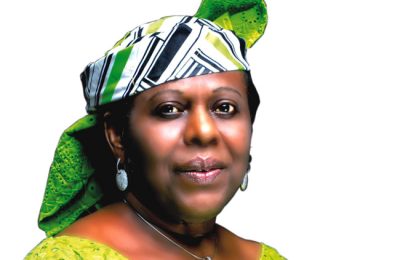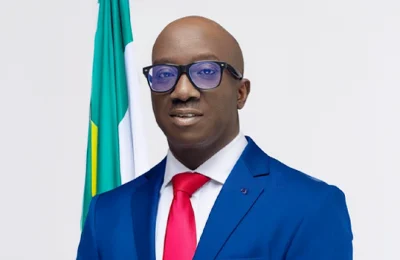LANRE ADEWOLE engages the spokesperson of the National Drug Law Enforcement Agency (NDLEA), Mr Femi Babafemi, on the activities of the agency.
How bad is drug problem among youths in Nigeria?
The 2018 drug use report already paints a grim picture of what the drug situation in Nigeria is, with 14.4 percent drug prevalence as against the 5.6 percent global prevalence average. That confirms that we already have an extreme drug abuse situation on our hands as far back as 2018 or the preceding years. Let us also consider the 2021 World Drug Report by UNODC, which says that by 2030, Africa will be a hotbed of drug abuse. The report notes that Africa will experience “an increase in the number of people who use drugs in the next decade, merely as a result of population growth.” It is projected that the number of people using drugs will increase by 40 percent in Africa. When they say Africa, I want us to think of Nigeria, because Nigeria has one of the highest drug use prevalence rates in the world. The report also notes, inter alia, that: “Considering the age structure of the current population of Africa and its projection by 2030, the projected number of people who use drugs in the region could be concentrated mainly in the age groups 25–29 and 30–34.”

What is fueling this worrying data?
The prevalence of substance abuse among Nigerian youths is better understood against the backdrop of the pervading subculture that fuels the proclivity to ‘get high’. To ‘get high’ is an idiomatic expression which in its literal sense is an accurate definition of substance abuse, to wit, the consumption of psychoactive substances for recreational purposes. While alcohol remains the usual starter, marijuana is often the main course with the menu invariably including controlled drugs and other psychotropic substances such as the so-called club drugs like Rohypnol and cocaine, pharmaceutical opioids, especially Codeine and Tramadol and a farrago of New Psychoactive Substances (NPS) often infused with beverage or spirits. This pattern of habit, which has become an integral part of youth lifestyle, raises disturbing questions: Why do young people seem to have a poor grasp of the danger of substance abuse? Or are they just willfully reluctant to acknowledge that psychoactive substances are inimical to their wellbeing, including their mental health? At any rate, most of them have a casual view about drugs, licit or illicit. This is a fact amplified by the World Drug Report 2021, which noted, inter alia, that: ‘the percentage of adolescents who perceive cannabis as harmful has dropped by as much as 40 percent, despite the evidence linking regular use to health problems, particularly in young people’. In the pseudo-reality world of some young people, it is normal, it is cool, it is fun to get high. This mindset is one of the underlying factors that drive their cognitive and behavioural disposition to the abuse of psychotropic substances. There is correlation between constructed reality about getting intoxicated and the actual abuse of substance by young people. The dynamics of substance abuse among youths is complex and constantly changing.

How well is NDLEA taming this?
With the benefit of over 34 years of drug law enforcement, NDLEA has empirical perspectives on the typology and patterns of substance abuse among young Nigerians. Let me highlight just three of the patterns. Cannabis: Cannabis sativa is the most abused substance worldwide. But in Nigeria, there is an extra dimension. It is the country with the highest number of cannabis users, the majority of whom―not surprisingly―are youths. Cannabis constitutes over 70 per cent of the 7.6 million kilograms of assorted drugs seized by NDLEA from 2021 to date. Grown locally, it is the most trafficked psychoactive substance across the country and is easily available to young people on the street. However, if we fixate on those who smoke the dried leaves and flowers of the plant, known variously as Marijuana, weed or pot, then we run the risk of underestimating the enormity of abuse of the psychotropic plant, because, in recent time, there has been an increasing number of non-smokers who consume cannabis as herbal drinks, of which the most popular one is Monkeytail, which is cannabis―seeds, leaves, stems and roots―soaked in local gin and hawked on the street by herbal mixers.
The proliferation of herbal and alcoholic bitters over the years and society’s inordinate penchant for them provided a conducive environment for the cannabis-infused drink to thrive. In Lagos, for example, Monkeytail is consumed by many people who wrongly claim that it cures malaria, it is aphrodisiac, it energises the user. Although often associated with Lagos and neighbouring states, NDLEA’s records from arrests and interdictions, however, showed that the consumption of Monkeytail has spread around the country. Nonetheless, the abuse of cannabis can substantially be curbed if Nigeria succeeds in eradicating the cultivation of the psychotropic plant in the country. That is why NDLEA is against any attempt to give legitimacy to the growing of cannabis. As a country, we already have 10.6 million cannabis users. And sadly, the figure is overwhelmingly young people.
What is the second pattern?
Pharmaceutical opioids. The country had to deal with the “opioid epidemic” between 2016 and 2019. At the time, there was a sweeping trend of converting Codeine cough syrup and Tramadol as the main ingredients for cocktail drinks at social events. Skoochies, the most prominent of the mixtures, is a cocktail of Cannabis sativa, Tramadol tablets, cough syrup with Codeine, Swifnol and zobo, boiled and dispensed over the counter at bars or bottled and sold to customers at a cost per liter. The other variant of the drink, Gutter Water, is a brew of Tramadol, cannabis, Codeine and vodka. These were creations of young people and the consumers were youths. And accordingly, it became the drink of choice for students in tertiary institutions, including teenagers, and young adults. The subsequent clampdown on Tramadol and Codeine helped to stem the tide. Nevertheless, this pattern of substance abuse among youths still goes on, albeit, at a low level because a lot of youths had mastered the mixology of Skoochies and Gutter Water and can brew them in their homes and for private parties.
And the third?
Drug cookies. This third pattern of substance abuse―the practice of using variants of cannabis alongside other psychotropic substances to bake cookies, buns and brownies that are packaged for sales at select bars, restaurants, shops and supermarkets―is common in urban centres. Young people pretending to be caterers, bakers and ‘personal shoppers’ use social media to advertise, take orders, get paid online, and engage couriers to deliver the drug-laced edibles to homes, clubs, social events and restaurants or public places. Working from home, they deliver to customers using dispatch riders and thus eliminate the risks that come with physical transactions of illicit substances.
The drug cookies racket was a booming enterprise until mid-2021 when NDLEA burst the bubble. The FCT command of the agency recorded strings of successes in a series of sting operations. Elsewhere, in Edo State, for instance, the agency recorded success, too. The demographics of those arrested were an eye-opener. A list of randomly selected suspects includes a 26-year-old medical doctor; a 20-year-old graduate who baked and did home delivery full time; two sisters (one of them a graduate with a bachelor’s degree in business administration) and a circle of friends who ran an Abuja syndicate from five different locations in the FCT; a third-year undergraduate and her boyfriend who ran a cottage business of drug cookies. The drug cookies racket is predominantly the preserve of educated young people in their 20s and 30s, most of whom have university education and high-profile presence on social media. This profile debunks the stereotypical view that young people who indulge in substance abuse are poor, unemployed and illiterate. Some of them had operated for as long as five years, and they confessed that it had been a profitable enterprise while it lasted.
What are the main strategies to stem this ugly tide?
NDLEA, as an efficient anti-narcotic organization, has had in the last three and a half years unprecedented drug supply reduction feats amidst a rollout of pragmatic policies, tactical measures and progressive developments in drug law policy and enforcement. Among the noteworthy developments were Offensive Action, War Against Drug Abuse (WADA), National Drug Control Master Plan, NDCMP 2021-2025 and Standard Practice and Policy Guidelines for Counsellors. In the renewed war against abuse and trafficking of illicit substances, our programmes are tailored to benefit the youth population in a number of ways. One is reorientation. We recognised that enlightenment will cut through the noise and distorted messages that made young people pliable to the use of psychoactive substances. If not for miseducation and misinformation, why would anyone believe that to ‘get high’ is a normal thing? To address this need, NDLEA created a directorate of media and advocacy in 2021 to, among other functions, counter misinformation, correct misconceptions and circulate accurate information on the consequences of abuse of drug and illicit substances, disseminate news of arrests, seizures and convictions to serve as a deterrent and raise public awareness on substance abuse for what it really is: illegal behaviour.
To these ends, we have deployed the full gamut of communication tools, technology and media. We have a commanding presence on social media platforms where we engage with young people. Now, there is no room for any wrong information about drug use and abuse to thrive.
Second is preventing substance abuse. The axiom ‘catch them young’ is a strategy that works with youths when it comes to preventing them from getting involved with illicit substances. To do this, we need the functional units and components of society―family, religious institution, traditional institution, schools etc―to work in concert with the agency. It is to this end that we launched the War Against Drug Abuse (WADA) campaign on June 26, 2021. WADA is designed to cascade down to the grassroots and entrench an anti-substance abuse culture. And in the last three years, we have had 6,423 sensitisation programmes in schools, worship places, motor parks, markets, communities, among others.
Finally, treatment of existing drug addicts. We are committing more resources to our Drug Demand Reduction activities knowing that one of the pathways to a state of zero substance abuse is successful treatment and rehabilitation of existing drug users. Consequently, we are working on building integrated rehabilitation centres in the six regions of the country where drug users will receive all the necessary medical attention and the therapy required to wean them off psychoactive substances for good. Three of these are almost ready for commissioning. So far, we have treated and counselled 33,453 drug users in 30 of our treatment centres across the country. The agency has also pushed for the entrenchment of the Drug Integrity Test in homes, schools and work places to serve as an early warning mechanism that will help to identify young people who need help to get over their addiction to illicit substances. This we are pushing through our Save our Families (SOF) social advocacy campaign.
READ ALSO: VIDEO: ‘My dad can’t afford my school fee,’ eight-year-old boy joins protest in Lagos







